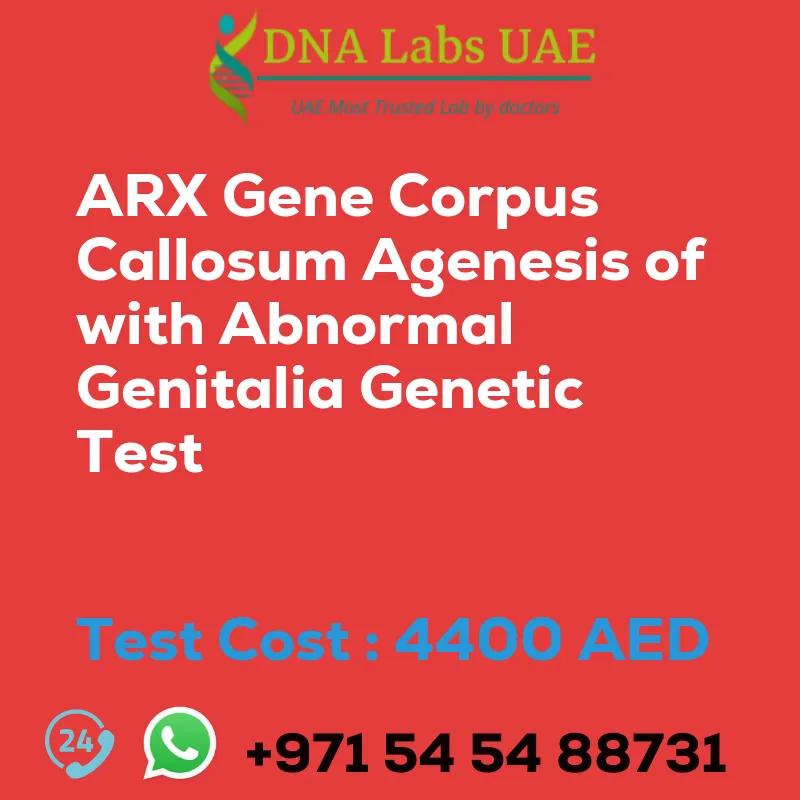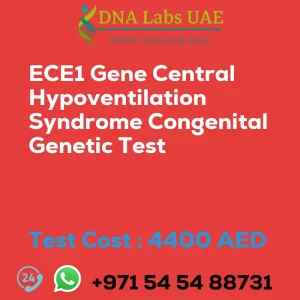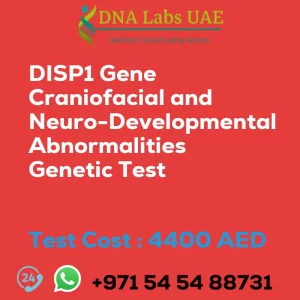ARX Gene Corpus callosum agenesis of with abnormal genitalia Genetic Test
Components: ARX Gene Corpus callosum agenesis of with abnormal genitalia Genetic Test
Price: 4400.0 AED
Sample Condition: Blood or Extracted DNA or One drop Blood on FTA Card
Report Delivery: 3 to 4 Weeks
Method: NGS Technology
Test type: Dysmorphology
Doctor: Pediatrics
Test Department: Genetics
Pre Test Information: Clinical History of Patient who is going for ARX Gene Corpus callosum, agenesis of, with abnormal genitalia NGS Genetic DNA Test. A Genetic Counselling session to draw a pedigree chart of family members affected with ARX Gene Corpus callosum, agenesis of, with abnormal genitalia NGS Genetic DNA Test gene ARX
Test Details
ARX gene, also known as Aristaless-related homeobox gene, is a gene that plays a crucial role in brain development. Mutations or abnormalities in the ARX gene can lead to various disorders, including agenesis of the corpus callosum (ACC) with abnormal genitalia.
Agenesis of the corpus callosum is a condition where the corpus callosum, a structure that connects the two hemispheres of the brain, fails to develop properly or is completely absent. This can result in a range of neurological and cognitive impairments, including developmental delays, intellectual disabilities, seizures, and problems with coordination and motor skills.
In addition to ACC, individuals with mutations in the ARX gene may also present with abnormal genitalia. This can include ambiguous genitalia, where the external genitalia do not clearly resemble either male or female characteristics. It is important to note that the specific features and severity of the condition can vary widely among affected individuals.
NGS (Next-Generation Sequencing) genetic testing is a powerful tool used to identify mutations or abnormalities in genes. It allows for the simultaneous analysis of multiple genes, providing a comprehensive assessment of an individual’s genetic makeup.
In the context of ARX gene mutations and ACC with abnormal genitalia, NGS genetic testing can help in confirming the diagnosis and identifying the specific genetic variants responsible for the condition. Genetic testing can be valuable for individuals and families affected by ACC with abnormal genitalia, as it can provide a definitive diagnosis, help guide treatment and management decisions, and offer insight into the recurrence risk for future pregnancies.
It is important to consult with a healthcare professional or genetic counselor to understand the benefits, limitations, and implications of genetic testing in specific cases.
| Test Name | ARX Gene Corpus callosum agenesis of with abnormal genitalia Genetic Test |
|---|---|
| Components | |
| Price | 4400.0 AED |
| Sample Condition | Blood or Extracted DNA or One drop Blood on FTA Card |
| Report Delivery | 3 to 4 Weeks |
| Method | NGS Technology |
| Test type | Dysmorphology |
| Doctor | Pediatrics |
| Test Department: | Genetics |
| Pre Test Information | Clinical History of Patient who is going for ARX Gene Corpus callosum, agenesis of, with abnormal genitalia NGS Genetic DNA Test. A Genetic Counselling session to draw a pedigree chart of family members affected with ARX Gene Corpus callosum, agenesis of, with abnormal genitalia NGS Genetic DNA Test gene ARX |
| Test Details |
ARX gene, also known as Aristaless-related homeobox gene, is a gene that plays a crucial role in brain development. Mutations or abnormalities in the ARX gene can lead to various disorders, including agenesis of the corpus callosum (ACC) with abnormal genitalia. Agenesis of the corpus callosum is a condition where the corpus callosum, a structure that connects the two hemispheres of the brain, fails to develop properly or is completely absent. This can result in a range of neurological and cognitive impairments, including developmental delays, intellectual disabilities, seizures, and problems with coordination and motor skills. In addition to ACC, individuals with mutations in the ARX gene may also present with abnormal genitalia. This can include ambiguous genitalia, where the external genitalia do not clearly resemble either male or female characteristics. It is important to note that the specific features and severity of the condition can vary widely among affected individuals. NGS (Next-Generation Sequencing) genetic testing is a powerful tool used to identify mutations or abnormalities in genes. It allows for the simultaneous analysis of multiple genes, providing a comprehensive assessment of an individual’s genetic makeup. In the context of ARX gene mutations and ACC with abnormal genitalia, NGS genetic testing can help in confirming the diagnosis and identifying the specific genetic variants responsible for the condition. Genetic testing can be valuable for individuals and families affected by ACC with abnormal genitalia, as it can provide a definitive diagnosis, help guide treatment and management decisions, and offer insight into the recurrence risk for future pregnancies. It is important to consult with a healthcare professional or genetic counselor to understand the benefits, limitations, and implications of genetic testing in specific cases. |








